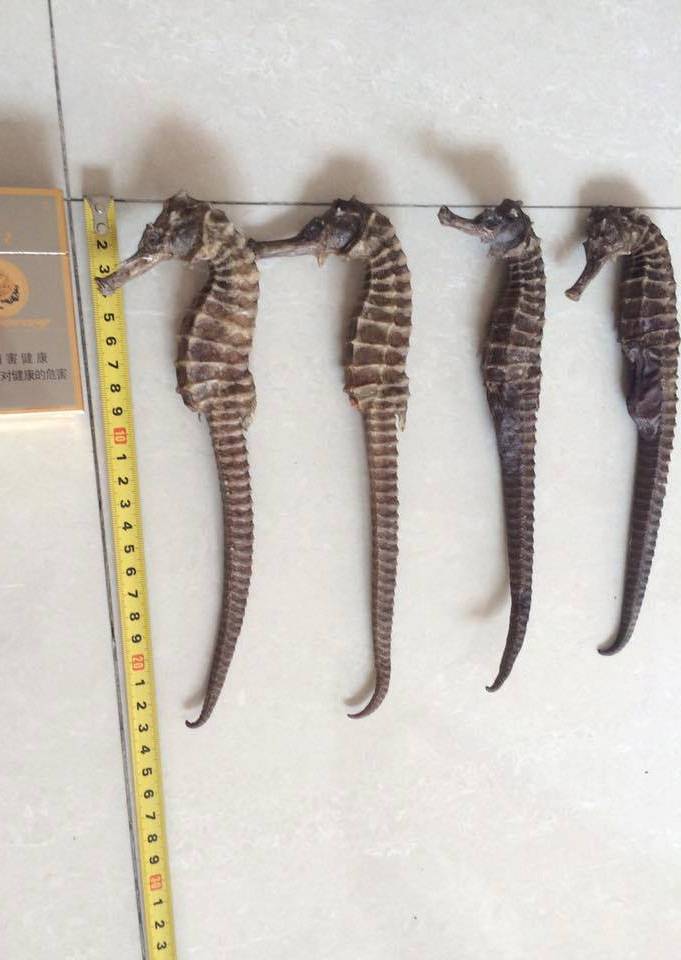Dry seahorses (Hippocampus spp.) used to be popular items found in Bay Area herb shops as both herbal medicines and decorative pieces.
Now they’re rare; ever since CITES listing, many major exporting countries have banned trade in these exotic creatures and herbal shops now need permits in order to legally sell these exotic creatures.
But that does not indicate reduced demand.
Demand
Seahorses are harvested globally for use in traditional medicine, souvenirs and aquarium fishes. Unfortunately, many species belonging to the Genus Hippocampus are endangered or vulnerable; as a result, an international treaty known as CITES restricts trade; however smugglers have found ways to circumvent this restriction by selling wild-caught Dried seahorse which are legal both in Hong Kong and mainland China.
While bans and trade restrictions can be effective tools, their true effectiveness lies in how effectively they’re enforced. Most countries that export seahorses currently impose either self- or CITES-imposed export limits, yet enforcement remains difficult. To understand why, researchers partnered with Hong Kong-based media HK01 and interviewed 189 traders from Hong Kong– the world’s top importer of dried seahorses–to find out why their trade thrives despite many source countries having banned the export of these unique fishes with horselike heads and prehensile tails; because smuggling remains profitable and simple.
Supply
Even though some seahorses may be caught for aquarium displays, most are dried and sold to traditional Chinese medicine practitioners for use as medicine. Hong Kong imported two thirds of all dried seahorses imported between 2004 and 2017! This trade boomed remarkably!
Seahorses are not directly targeted by commercial fishermen; however, they are frequently caught up by indiscriminate gear such as bottom trawling, which also destroys habitat. Due to this threat two seahorse species have become endangered while twelve remain vulnerable.
Most major seahorse exporting countries have imposed bans on wild-sourced dried seahorses for exportation; however, enforcement is lax and can easily be circumvented by smugglers hiding illegal specimens within legally purchased specimens. Therefore, according to this study’s conclusion, governments need to enforce CITES-required permits that certify any sold seahorses were caught without harming wild populations and work closely with local fishermen rather than simply issuing bans from above; doing this might involve altering legal framework and training of enforcement officers as well.
Pricing
Prices for dried seahorses have skyrocketed in recent years and many species are in danger of extinction due to both rising demand for Traditional Chinese Medicine (TCM) products, and their slow development rates. Also, non-selective fishing techniques such as trawling can indiscriminately catch them along with other species.
Seahorses can easily be smuggled across borders, and countries that prohibit their trade must find ways to regulate it without jeopardizing wild populations. Despite implementing trade bans and restrictions, global trading continues.
Foster would like to see more holistic fisheries management that focuses on reducing fleet size, closing off large sections of ocean from trawling, and counting and documenting all seahorses caught. She would also like to see greater enforcement of trade bans as well as rigorous checking for dry seahorses being shipped – hard-to-spot creatures which change colors to disguise themselves even further!
Market Trends
Even after international bans and efforts by conservation groups, the global seahorse market remains healthy despite efforts made by conservation groups and international bans. This can largely be attributed to China’s unquenchable demand for traditional Chinese Medicine remedies made with dried seahorses for ailments including asthma, insomnia and impotence – these being believed to provide effective relief.
China is becoming more prosperous and moving away from Western medicine, increasing demand for herbal remedies is likely to rise as people become less reliant on it. Furthermore, they provide cheaper solutions than physicians in rural areas where doctors are scarce or expensive; traditional remedies provide cheaper solutions.
Even with bans in place, millions of seahorses are caught annually as bycatch in nonselective fisheries such as shrimp trawls. Switching to more selective fishing practices would significantly decrease their numbers being caught and reduce their vulnerability.
